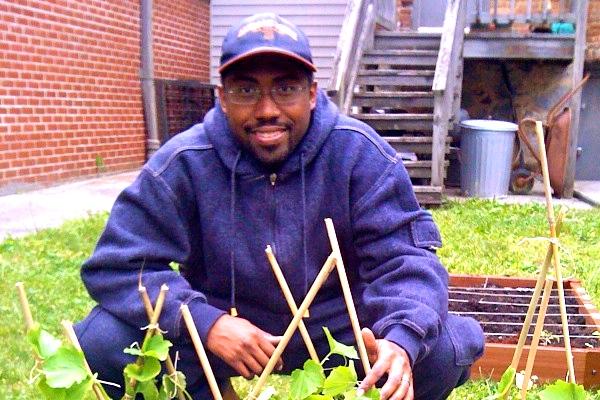Bio: Rev. Heber Brown III is pastor of Pleasant Hope Baptist Church in Baltimore. Brown, Aleya Fraser, and Darriel Harris started the Black Church Food Security Network to connect black churches in food deserts with black farmers and urban growers.
Website: blackchurchfoodsecurity.net
1. How did the Black Church Food Security Network get started? As a result of the uprising [following the death of Freddie Gray], many corner stores in the most impoverished neighborhoods in Baltimore were put out of commission. It was an unjust arrangement to have entire neighborhoods dependent on corner stores for their food before the uprising, but the uprising intensified that already strained and unjust social arrangement.
Aleya [Fraser] started to call her farmer friends and food distributors—African-American grocers in Philadelphia and D.C.—and they started moving food to Baltimore. We transformed my church into a food depot and distribution center. We would process food donations from all over, and then we would pile the food in our church bus and I would drive the food around to those communities that needed food. We would set up shop on the corner and give out the food. We did that for nearly three weeks, and we realized that we had the beginnings of an alternative food system. The name came later; the action came first.
Read the Full Article

